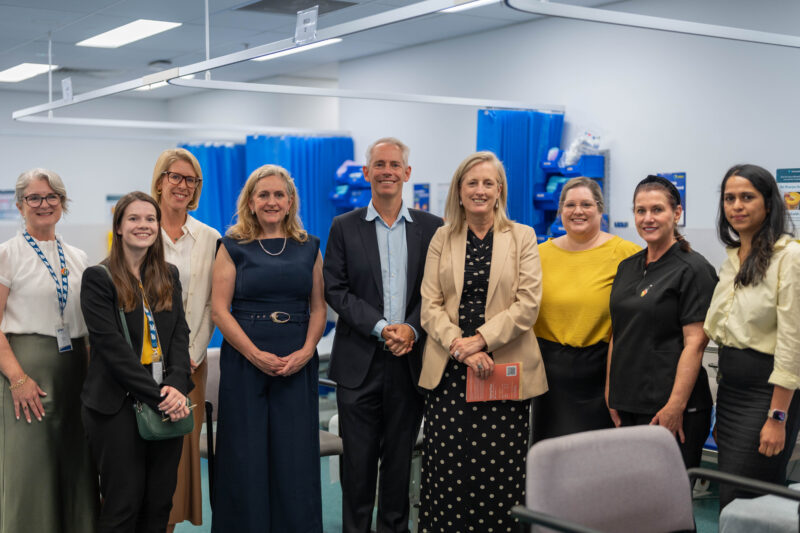
18 March 2024
With more than 14 years’ experience as a General Practitioner, Dr Vidya Prahbu enjoys family and general medicine, along with women’s health. In the women’s health space, Dr Vidya’s particular interests lay in antenatal and postnatal care, sexual health and contraception, as well as menopause. Apart from general practice, Dr Vidya is also passionate about teaching and offers her time to future general practitioners who are still studying.

Dr Vidya is a part of the team at the Epping Endometriosis and Pelvic Pain Clinic.
“Our service is a specialised service catering to two distinct patient groups: those diagnosed with endometriosis and individuals seeking a diagnosis for pelvic pain.”
“The clinic adopts a patient-centric approach, customising each patient’s journey to their unique needs and empowering them to advocate for their own health. The expected duration of the patient journey is six months, during which they receive direct support from myself and a dedicated nurse through regular 6-week check-ins.”
“We benefit from our multidisciplinary team comprises pelvic pain physiotherapy, psychologists, and establishes direct connections with specialists in pain management and gynaecology at the Northern Hospital. This collaborative effort aims to address the holistic needs of patients, offering a comprehensive approach to managing both endometriosis and pelvic pain. The overarching goal of the service is to empower patients by enhancing their understanding of their health, providing clarity on accessing appropriate care and resources, and ultimately reducing stress and wait times in the healthcare system. The integration of various healthcare professionals ensures a well-rounded and effective support system for individuals navigating the challenges of endometriosis and pelvic pain.”
How can GPs better support women’s health?
“Women have unique health needs and specific challenges throughout their lifespan. Primary care physicians are well placed in the community to identify their unique needs and manage them efficiently.”
“GPs can provide accessible care to women who generally feel not well supported.”
“Educating women about their unique needs and empowering them to take charge of their health is the primary step.”
“Supporting women’s health contributes to reducing health disparities and ensure equitable access to healthcare services.”
What clinical advancements in the past 5 years have you seen which have made the biggest impact in women’s health?
“Societal shifts, as well as changing lifestyles and habits, continue to have a significant impact on the health and wellbeing of women and girls in Australia. In global terms, Australian women and girls experience strong health outcomes – for example, an Australian girl born during the period 2014-16 can expect to live to nearly 85 years, which sees Australia having the eighth highest female life expectancy when compared with 35 member countries of the OECD. This is possible due to efficient screening tools available to Australian women to screen for potential health risks. These figures could improve by raising more awareness among the community.”
Can you recommend any tools or resources to support positive patient outcomes?
“Data and analytics are essential for healthcare providers to monitor patient outcomes accurately. By utilising data and analysing trends, healthcare providers can identify areas where improvement is needed and target interventions to improve those areas. Additionally, data can be used to compare the performance of different providers across the same metrics and to measure patient outcomes. This comparison can help healthcare providers determine which strategies work best and where improvement is needed. Additionally, data-driven decision-making can help increase efficiency in healthcare delivery and reduce costs.”


